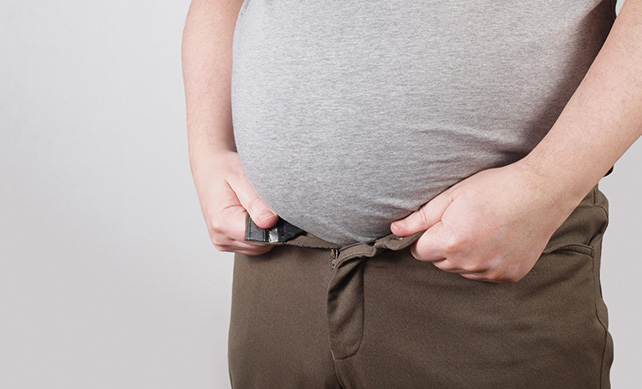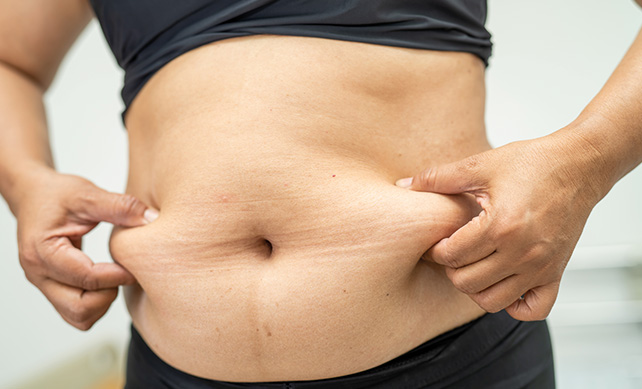What Is A Gastric Sleeve Operation
In recent years, there has been a growing trend towards weight loss surgeries, with many individuals turning to surgical interventions for solutions in managing their weight. Turkey offers four main types of bariatric surgeries:
- Gastric Bypass surgery
- Gastric Sleeve surgery
- Gastric Balloon procedure
- Gastric Botox treatment
Among these options, the Gastric Sleeve surgery stands out as particularly popular in Turkey. It is considered a straightforward and highly secure procedure, involving the removal of approximately 70% of the stomach’s original size.
Stomach reduction through Gastric Sleeve surgery accelerates satiety and curtails food consumption, aiding in weight management. Results vary, but patients often shed up to 70% of excess weight. Recent advancements in Turkey allow for combining Gastric Sleeve with Gastric Bypass surgery for enhanced efficacy. It’s crucial to note that the stomach, being muscular, can regain its previous size if post-operative guidelines and dietary recommendations aren’t adhered to, potentially resulting in weight regain.




What Medical Issues Can Be Treated With A Gastric Sleeve
Gastric Sleeve surgery is not only a solution for obesity or excess weight but also for many other diseases. If the patient follows all the instructions given by the doctor and has a healthy diet, they can be free from several health problems. Some of those are as follows:
- Type 2 diabetes: The surgery provides insulin resistance.
- High blood pressure (Hypertension): Since gastric surgery eliminates excess weight, it improves the body’s blood pressure levels.
- High cholesterol: As with all bariatric surgeries, Gastric Sleeve operation also improves and balances cholesterol levels.
- Sleep Apnea: When patients lose weight after bariatric surgery, the fatty tissue around the upper airway reduces, which can prevent sleep apnea and related upper airway collapse.
- Joint Pain: The excess weight on the body can be a burden to the joints and cause pain. Removing this burden by weight loss surgery can relieve joint pain.
Candidates For Gastric Sleeve Operation
Bariatric procedures can aid in weight loss, but not all individuals are eligible. In Turkey, specific criteria must be met for sleeve surgery:
- Individuals experiencing obesity and adiposity.
- Those struggling to alter their eating patterns.
- Individuals with a BMI of 35kg or higher.
- Candidates must be in good health without any conditions that could complicate the surgery.
- Age requirement: Candidates for Gastric Sleeve surgery must be between 18 and 65 years old.
- Absence of stomach ailments such as ulcers or gastritis that could impede the procedure.
Pre-Gastric Sleeve Operation Tips
Before undergoing Gastric Sleeve surgery, it’s crucial to adhere to the doctor’s advice and instructions to achieve the desired outcome. This includes:
- Abstaining from eating anything for approximately 5 hours prior to the surgery.
- Avoiding stimulants like caffeine, as they can interfere with anesthesia response.
- Steer clear of medications known to thin the blood, such as Ibuprofen.
- Engage in regular exercise leading up to the surgery.
- Avoid consuming high-calorie or saturated fat foods.
- Ensure adequate hydration by drinking plenty of water before the operation.
- Refrain from smoking for at least a month before the surgery.
- Avoid ingesting any substances that could thin the blood, such as green tea or certain vitamin combinations, to minimize the risk of bleeding during the operation.
Tips After Gastric Sleeve Operation
Following Gastric Sleeve surgery, adherence to medical instructions is crucial for optimal outcomes and to minimize potential side effects. These guidelines include:
- Maintain adequate hydration by drinking plenty of water post-surgery.
- Avoid beverages containing gas or added sugars.
- Incorporate nutritional supplements containing vitamins and calcium into your diet for at least a month post-surgery.
- Refrain from smoking for a minimum of two months post-surgery to facilitate proper healing and recovery by ensuring sufficient oxygen levels in the blood.
- Follow a prescribed diet plan created by a nutritionist to ensure a balanced intake of proteins and other essential nutrients.
- Limit fluid intake exclusively to liquids during the initial week post-surgery.
- Gradually incorporate exercise into your routine starting two weeks after the Gastric Sleeve operation.



Stages Of Gastric Sleeve Operation
The Gastric Sleeve operation is both safe and efficient, typically lasting around 45 minutes with patients often discharged on the same day. Here’s an overview of its stages:
Initial Stage: Clinical Assessments — Prior to the operation, candidates undergo comprehensive tests and examinations. This is crucial to ensure eligibility and to identify any underlying conditions that might pose risks post-surgery. Additionally, the surgeon assesses the appropriate portion of the stomach to be removed based on the patient’s weight.
Second Stage: Anesthesia Administration — General anesthesia is administered for Gastric Sleeve surgeries. Before the procedure, the anesthesiologist administers anesthesia to ensure the patient remains unconscious and pain-free throughout. Adhering to preoperative instructions is essential for the success of the anesthesia process.
Third Stage: Gastric Sleeve Procedure — The majority of Gastric Sleeve surgeries utilize robotic or laparoscopic techniques. A laparoscope, which provides visual monitoring inside the abdomen, is employed. The surgeon creates small incisions in the upper abdomen to introduce the laparoscope. Subsequently, approximately 70% of the stomach is removed, leaving behind a sleeve-shaped portion, thus giving rise to the name of the surgery.
Gastric Sleeve Surgery Cost
The price range of the surgery radically changes from one country to another. This change can result from several things, such as;
- The country’s currency,
- The condition of the health system,
- The waiting list that the system offers,
- The technology used in surgical fields.
Today, many people prefer Turkey for bariatric surgeries because of the lower costs and short waiting lists it provides. The prices Turkish hospitals and clinics offer are almost half the fees that European countries offer. Moreover, Turkey has much to offer patients other than just surgery.
Turkey’s quality clinics, experienced surgeons, state-of-the-art technology equipment, and improved health tourism field make it a great candidate for patients. Besides the technical part, Turkey is also very appealing as a tourist place. Patients prefer Turkey not only for the low cost of surgery but also for the opportunity to travel to an exciting country rich in natural and cultural wonders.



